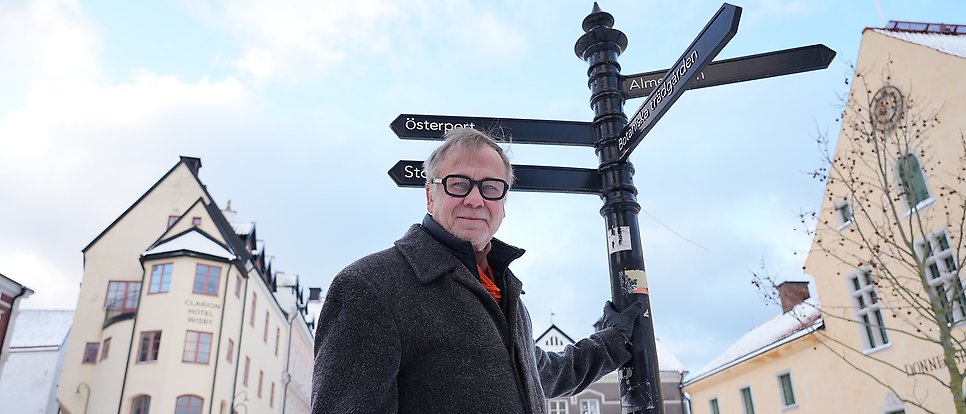Sustainable innovations for cultural tourism

"Our goal is to help small communities find a new future through the sustainable use of their cultural heritage”, says Professor Christer Gustafsson from the Department of Art History at Uppsala University. Photo: Daniel Olsson
Uppsala University has been, and remains, a leading force in the EU-funded project “Be.CULTOUR”, which focuses on sustainable innovations for cultural tourism. In this interview, Professor Christer Gustafsson from the Department of Art History at Uppsala University, who is project manager, answers some questions about the project.
What is the project about?
“Be.CULTOUR started out as an international research project exploring various economic aspects of conservation. Through meetings with international research committees and collaborations, the project evolved to focus in particular on circular economy, where we identified a lack of skills and knowledge at regional level. Not many top politicians think about cultural conservation, we need to become better at reaching out to them. Be.CULTOUR has evolved further to become Beyond Culture Touring, where we focus on creating local action plans for small localities. For example, how communities can find a new future for listed buildings.”
Which parts of the project are of most interest to you and Uppsala University?
“One of the things we’re concentrating on is developing sustainable solutions for communities with disused industrial areas and cultural heritage. We’re working on identifying opportunities and challenges in these areas, and seeking to create sustainable development by using circular business models. Through workshops and cooperation with local stakeholders, we’re trying to find new uses for existing buildings and cultural sites. Our goal is to help small communities find a new future through the sustainable use of their cultural heritage.”
In what ways can culture benefit the economy?
“Culture should be regarded as an investment, not as a cost. A tenth of all Swedish businesses are in the cultural sector and culture has a particularly important role in the local economy, with impacts in areas ranging from youth unemployment and crime to global sustainability goals.”
What are the challenges of the project?
“The challenges include the lack of long-term plans in the cultural conservation sector and the need to learn how to express the economic value of culture.”
What’s it like working in a huge EU project?
“There’s no end to the advantages of working in an EU project. It’s easier to develop special methodologies and to take a position as a respected voice in the area. We wouldn’t have managed this as an independent research group.”
What are the future plans for the project and for your own research?
“We’re currently considering whether and how we can implement Be.CULTOUR in the Uppsala region and we’re also working on a project in Gottsunda. Another of our ideas is to create a national network based on the Be.CULTOUR initiative, which could include the Gotland region and Uppsala, though that’s still just on the drawing board. Then I have my own little ‘pet project’, or whatever you like to call it, where I’m trying to review forms of financing and see how we can increase the attractiveness and understanding of investments in culture and conservation.”
Agnes Loman
Be.CULTOUR
- A European cooperation project that aims to promote sustainable cultural tourism and economic growth by focusing on cultural resources and cultural heritage.
- By integrating circular economy principles and sustainable development, the project seeks to promote the use and preservation of existing cultural assets, such as historic sites, buildings and traditions, rather than creating new ones.
- The project involves a number of partners from different European countries and works on developing methods and tools for promoting sustainable cultural tourism. This also includes creating action plans and strategies to promote culture-based economic development in various regions.
- The objective is to contribute to increased awareness and understanding of the value of culture for the economy and to promote cooperation and the exchange of best practice in the area.
